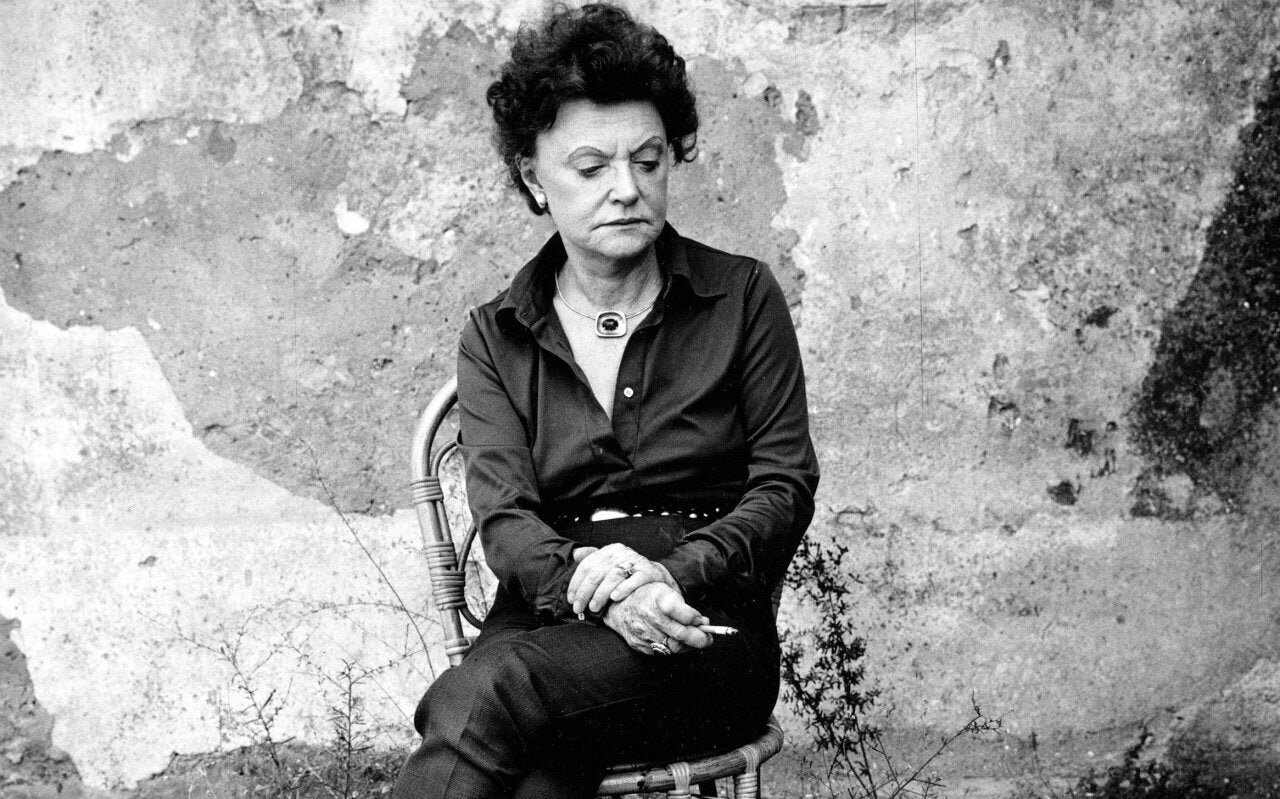Seeking (Fictional) Converts at the End of the World
In the late fall of 2019, on the cusp of my conversion to Catholicism, I discovered Muriel Spark. It happened tangentially, almost by accident, after hunting for kindred spirits of the likes of Evelyn Waugh and Graham Greene.
Within two months I’d read seven of Spark’s novels—each often consumed within a few days, which was not an inconsiderable feat for a new mother staying home with a baby. Each story tapped into something intuitive that made Catholicism feel a little less foreign, gave me other lives in which to see the kind of shape my own seemed, inevitably, to be taking.
Enter spring 2020, an interstate move, a second child, and a long loneliness of confusion around how much human interaction is possible during a pandemic, and I am now on the other side of something, looking at the Church from the inside out. Throughout these shifts, I’ve spent an immeasurable amount of time immersed in conversion stories as I try to begin to make sense of my own. Hovering in fictional spaces created by writers who inhabited the same kind of spiritual territory has provided comfort of a certain quality that has so far felt nearly impossible to find in flesh-and-blood community. Spark, Waugh, and Greene all limped their way to Catholicism as the visible world failed them in ways relational, intellectual, and spiritual. Although I see enough glimpses of myself in them and in their characters to want to keep reading, I have wandered along on my own long enough to begin to have more questions.
Muriel Spark - the perfect picture of a convert
What is it we seek, really, in stories of conversion? And for whom do we write them? We Catholics love to hold up the countless examples (literary and otherwise) of people who chose The Church over Any Old Way Of Life: the three already mentioned, St. Augustine, St. John Henry Newman, Gerard Manley Hopkins, G.K. Chesterton, Walker Percy, Dorothy Day, Thomas Merton—the list goes on and on. We carry their names like candles, afraid to drop them or to let them go out. I’ve read most of them and have adopted a few as my own unofficial patron saints, hoping to find models that could redeem the angry, incomplete Protestant faith of my inheritance. But where are the converts who aren’t yet on the other side of eternity? Why do we keep going back to these examples as the decades, the centuries, wear on, expecting their stories to never wear out?
On the surface, it seems to me that an obvious goal in writing about conversion would be, God willing, to make converts. But how does one get such stories into the hands of unbelievers in the first place? Or are they often better suited as reassurances of belief, confirmations in hindsight that what seemed to be an aimless journey led ultimately to the same God who has been calling all of us always? I honestly do not know. This question of audience has paralyzed me in trying to understand what kind of language could give flesh and blood to the rickety skeleton of my own conversion. Despite having several close friends and family members who are practicing Catholics, I am otherwise a stranger in a strange land. Some of the people I care most about in this world have largely abandoned the faith they were born into and, by all appearances, actively disdain (or at least disregard) many of the things my adopted institution upholds as sacred. As much as I would love to simply hand each of them a copy of Brideshead Revisited as an answer to any question they could ever ask about how I ended up Catholic—for it was in Sebastian that I first truly felt able to accept the reality of my own unwavering, tormented belief; in Charles that I knew it was impossible to choose any other course of action—I can’t escape the fear that that would possibly do more harm than good, that it would simply seem to serve as another example of the ways that many think Christians no longer know how to make truth translate to the rest of the world. Or would it?
It’s in these moments that I again find myself needing Muriel Spark. Her explanation in her autobiography, Curriculum Vitae, echoes the best I can give for myself: “When I am asked about my conversion, why I became a Catholic, I can only say that the answer is both too easy and too difficult.” It brings to mind that famous line from Chesterton (“The difficulty of explaining ‘why I am a Catholic’ is that there are ten thousand reasons all amounting to one reason: that Catholicism is true.”) or from Percy (“What else is there?”)—and again, we are back to those Old Standards. There is something to be said for the Catholic love of—dependence upon—tradition. That long line of saints and other sinners-washed-clean is what continues to shine in the darkness. But still, I’d like to find someone else near at hand, in the now, who is looking for a light.


